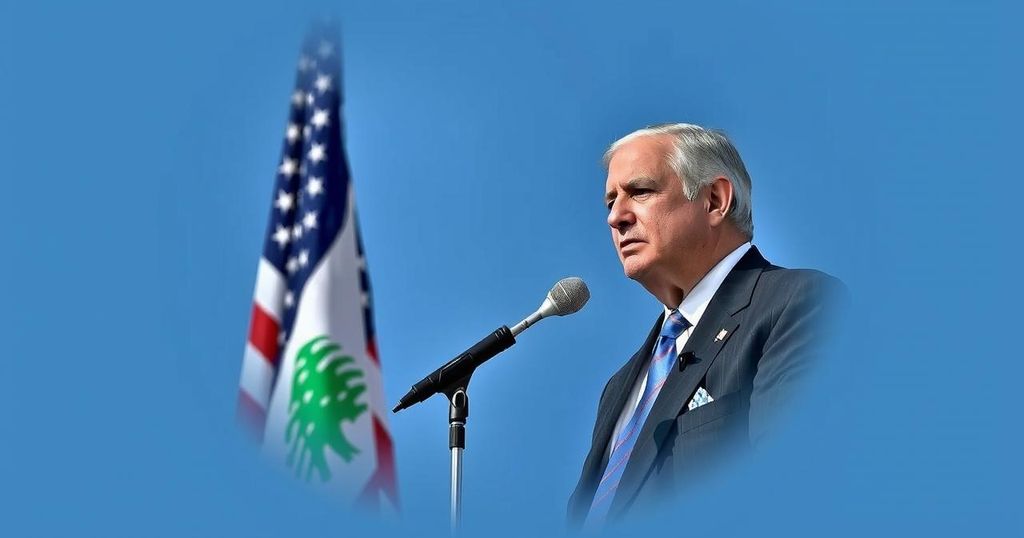U.S. Ambassador to Lebanon, Lisa Johnson, reportedly advocates for the Lebanese to rise against Hezbollah amid military conflicts with Israel. She encourages internal upheaval to pave the way for a new leadership, specifically suggesting the election of General Joseph Aoun as President. Under her guidance, efforts are underway to instigate sectarian tensions while aiming to dismantle Hezbollah’s influence both politically and militarily.
Recent reports from Al-Akhbar indicate that U.S. Ambassador to Lebanon, Lisa Johnson, is actively promoting an internal uprising against Hezbollah as she seeks to facilitate a “post-Hezbollah era” in Lebanon. In discussions with Lebanese political figures, Johnson underscored the necessity for local leaders to take initiative, asserting that Israel cannot accomplish its goals solely through military conflict. She implored politicians to inspire the Lebanese populace to rise against Hezbollah, reminiscent of the era following the assassination of Prime Minister Rafik Hariri. Johnson advised the election of Lebanese Armed Forces Commander General Joseph Aoun as President, whom she believes would stabilize the military’s authority against Hezbollah sympathizers. She, reportedly, assured Lebanese allies of support from both Arab nations and Western allies as she expressed her intent to leverage the ongoing conflict to weaken Hezbollah’s influence. Additionally, the ambassador is alleged to be facilitating operations that exploit sectarian tensions, particularly in areas hosting displaced Shia populations. These actions are seen as a strategic push to diminish Hezbollah’s political and military dominance in Lebanon while advocating for substantial changes in the country’s leadership dynamics.
The relationship between the United States and Lebanon has been historically influenced by regional conflicts, particularly concerning Hezbollah’s prominent role in Lebanese politics and security. The U.S. perceives Hezbollah as a critical player in the Iranian axis, thus viewing its dismantlement as essential for regional stability. Ambassador Johnson’s recent interventions highlight an intense and proactive approach to reshape Lebanon’s political landscape amidst escalated hostilities with Israel, thereby fostering a political environment conducive to U.S. interests. Furthermore, Lebanon’s intricate demographic fabric, composed of various religious sects, presents challenges that foreign powers often exploit to incite division and conflict, reminiscent of the civil war period that ravaged the nation for decades. The U.S. involvement in Lebanese affairs, particularly through its diplomatic representatives, often aims at influencing local governance and military structures to align them more closely with Western agendas, particularly regarding countering Iranian influence and promoting stability in line with U.S. foreign policy objectives.
The actions of U.S. Ambassador Lisa Johnson convey a clear mission to destabilize Hezbollah’s grip on power by encouraging internal dissent within Lebanon. Utilizing the current regional tensions, she seeks to inspire political changes that prioritize the military’s authority and diminish Hezbollah’s influence both militarily and politically. As Lebanon’s complicated sectarian landscape is leveraged as a tool for division, the repercussions of these developments could have lasting implications for the country’s stability and political cohesion.
Original Source: mronline.org







